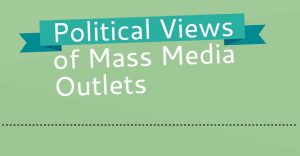Minnesota, highest for political ad spending
November 9, 2018
If Minnesotans have turned on the television at any point this month, they have almost certainly seen some of the many political advertisements bombarding them. They may have seen House candidate Dean Phillips comparing opponent Erik Paulsen’s elusiveness to that of Bigfoot. Alternatively, they may see claims of House candidate Angie Craig participating in shady business practices while legal documents scroll ominously in the background. Political advertisements are simply too focused on undermining opponents and manipulating voters than truly informing them.

Spending on political advertising in Minnesota recently exceeded $70 million. Over 27,000 television ads have aired in Minneapolis since Sept. 3, the 5th most in the nation. However, it is notable that most of the money does not originate from the candidate’s campaigns, but by outside groups. The two biggest spenders were the Democratic Congressional Campaign Committee, at $12 million, and the National Republican Congressional Committee, at $7 million.
“I run a positive campaign, I don’t bring up the other person who’s running against me, I figured that they can stand on their own merits,” Starry said.
In Starry’s comment lies the issue with this year’s campaigns. Many of these campaigns focus on the opponent, rather than running a positive campaign. For example, Paulsen’s ads quickly characterize Phillips as “dishonest,” and “another shady businessman who’d make things worse.” The ad used the fact that a coffee shop owned by Phillips did not offer health care to part-time employees, despite Phillips claims that health care is “a moral right,” to support its claims.
Conversely, Phillips aired a mockumentary style ad chronicling the character Bigfoot’s attempts to find evidence of Erik Paulsen’s existence, eventually finding him in the headquarters of a pharmaceutical corporation. Phillips’ essentially stated that Paulsen is out of touch with common Americans, only listening to special interest groups.
Both advertisements tell viewers little about their respective candidate’s policies, instead of demonizing the opposing candidate. Both also utilize half-truths to make a point. Paulsen’s ad willingly ignores that Phillips does offer benefits to his coffee shop’s employees, as well as paying them $15 per hour. Simultaneously, Phillips’ ad uses the simple fact that most citizens do not commonly see their representative to characterize Paulsen as an elusive, unaccountable figure.
However, Paulsen and Phillips’ ads are just a couple examples of a far larger problem of advertisements manipulating voters rather than educating them. Similar to what Starry said, candidates should run on their own merits, rather than attacking those of their opponents.
Starry elaborated on what a positive campaign looks like, “I made sure that we run a positive campaign and making sure that people know who back me and my initiatives and all the great things that are men and women are doing every day out in the community.”
Admittedly, political advertising is necessary for candidates in order to promote themselves. It is nigh impossible to reach the masses without the use of media. Additionally, it is somewhat necessary to point out the flaws of an opponent. However, this does not justify the use of half-truths or flat-out lies in order to manipulate voters.
What voters can do to combat political advertising techniques is educate themselves. Local news stations post fact checks on their websites, giving context to points brought up in ads. Voters can also make sure to look into candidates themselves, finding an ideal candidate, rather than the lesser of two evils. The primary way to fight the current political climate is through education.
“The last election for sheriff where there was a challenger was back in 2006. It was only 134 votes that separated the candidates, so votes do matter. We’ve seen that in presidential as well as local elections. Get out, and make sure that make sure you do your homework on your candidates,” Starry commented.









